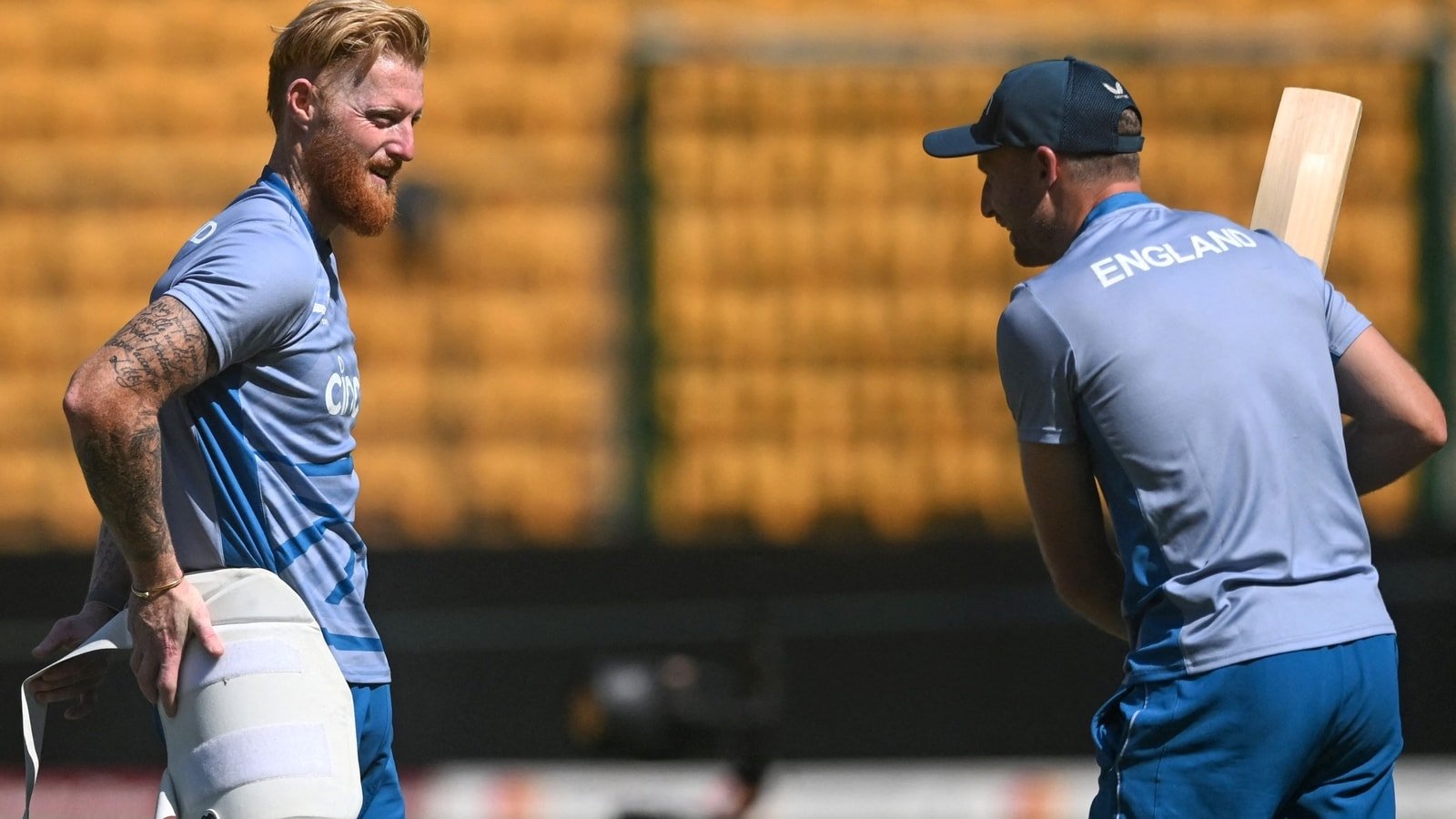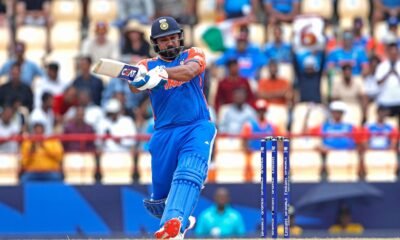Cricket
Contract over Cup leaves England facing a miracle | Cricket
[ad_1]
A revised central contracts system is making news in English cricket. For the first time since 2000, England’s cricket board (ECB) has offered multi-year central contracts to its players. Harry Brook, Joe Root, Mark Wood, Jofra Archer, Jos Buttler and Ben Stokes were offered three-year contracts. Archer and Buttler opted for two-year deals while Stokes only agreed to a single-year contract. In all, 29 players received offers — 18 multi-year deals, eight one-year contracts and three development contracts. It’s raining money, and everyone’s cashing in.

The optics of this development do not fit with the England team’s reality. Right now, the point of bemusement is the World Cup spiralling out of control. If defeat to Afghanistan wasn’t sobering enough, the hammering by South Africa has sent England crashing. It has already left 2019 feeling like some isolated glory as England seem to be going through the motions in India without a sliver of inspiration. To offer a revised, and plumper, central contract at this juncture seems poorly timed and sends a wrong message.
For the record, the contracts were not due for renewal. “In the simplest terms, we have done all of this stuff — multi-year deals — a year early,” Rob Key, England’s managing director, told the BBC in Bengaluru. “The contracts system follows the broadcast cycle and the next broadcast cycle starts next year. In essence, to make any changes, really, you are meant to do that next year.”
Triggering this sudden override is the increasing earning potential of players in franchise cricket, with the ILT20 and SA20 (in South Africa) being launched this year. “Originally, we thought that (increasing) match fees was the way to go,” said Key. “And then that changed a little bit when Woody (Mark Wood) was offered a big deal (£400,000) out in the UAE to play in the ILT20. Then we thought, ‘hang on, we might need to think about this and make sure that we can offer enough incentive for our best players to sign central contracts.’ And we got a little bit more money put into the pot.”
Upgrading a player’s contract is never unfair. But given the circumstances, England’s priority seems not to be rewarding players but holding on to them for the foreseeable future using all possible means. “It’s the first time we’ve been able to, not call the bluff of players, but actually say, ‘come on then, where do you want to be?’ And actually they’ve all chosen to play for England — to commit to play for England as and when selected.” All this when the likelihood of England getting eliminated from the title race, rather than any resurrection, looks likely.
The rapidly changing attitude of the players can’t be blamed for the disastrous campaign. What England does in the ODI World Cup, however, matters. The visceral thrills have come in Tests followed by T20s, but let’s not forget where it all started — the 2019 World Cup final which made one-dayers gripping again. It was in that frenetic match that the idea of a fearless England unwilling to change their brand of cricket even in India arose. That image is in tatters. Let’s face it: winning five matches in a row — including one against the rampaging India — and then hoping some equations go their way looks highly implausible.
“Everything is a must-win,” said Moeen Ali in Bengaluru a day before England were due to face Sri Lanka, who have won five out of their six matches. England have won one out of four. “We know we’ve been in this position before, probably not to this degree but we know everything is a must-win and we have to get our confidence and perform well and bat and bowl and field better than we have done so far in this tournament.”
It’s difficult to dissociate England’s reinvented Test game from their white-ball repertoire. The core is more alike than different. And with younger players coming in, there’s bound to be fewer Test specialisation in future. Having set the benchmark at home — in Tests and the World Cup— it was imperative England followed suit abroad, especially in India. That hasn’t happened, more because England focused solely on Test and T20 since 2019.
“The thing is, Bazball is in Test cricket,” said Ali. “One day cricket’s different and we’ve been playing different all the time. Probably the lack of that way of cricket has probably cost us a little bit in this tournament… I think we need to play that way, but without slogging the ball, but just be that really aggressive side that we know we can be.”
The point is, just because it’s a different format, England haven’t shed their attacking mode. “Bazball” or whatever Brendon McCullum wants to call it, is now synonymous with English cricket. Yet, this World Cup has tested and tried England in ways they may have not imagined. It has also questioned England’s readiness, especially of Jos Buttler who has been in charge of a system for which ODIs haven’t been an unequivocal priority.
To mount a comeback from this low at a time when the system seems more bent on wielding some control on their players instead of motivating them for a tournament that triggered this revival in the first place, looks a tall order.
[ad_2]



















